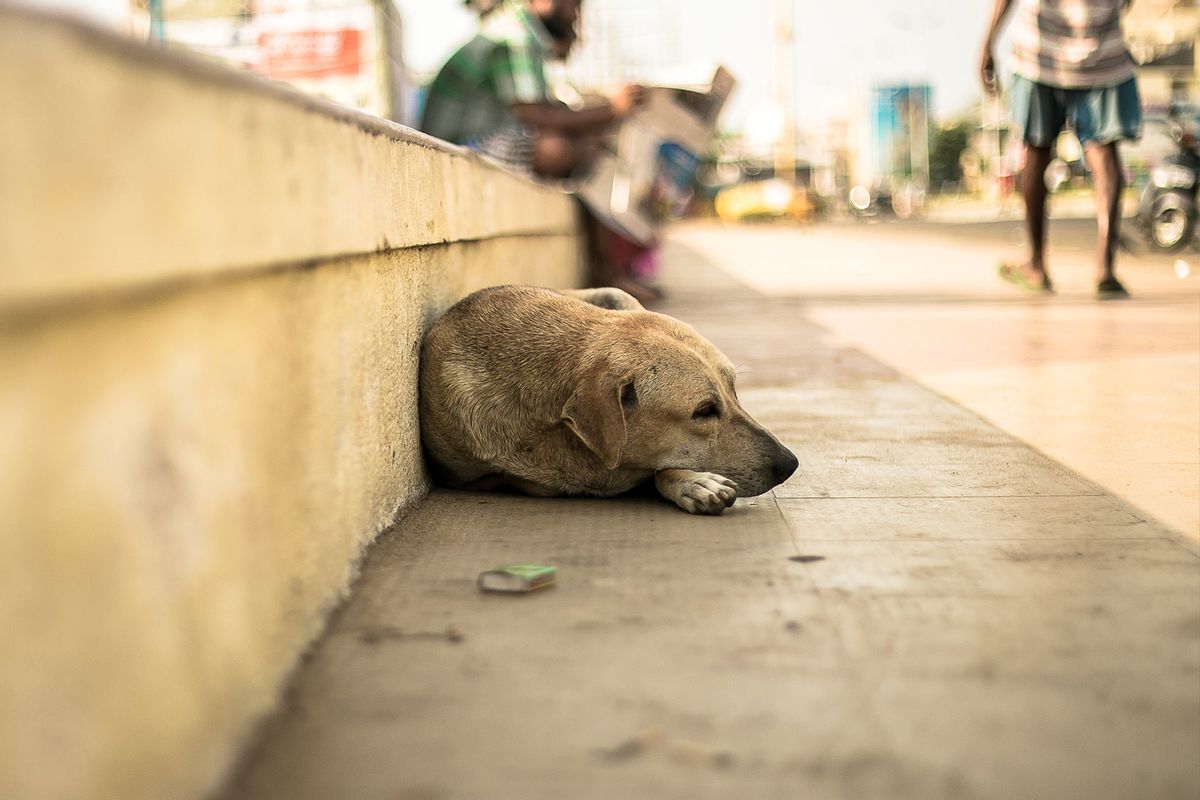Comedians Will Ferrell and Jamie Foxx voice adorable canines in the upcoming summer comedy "Strays." As the title suggests, "Strays" is the story of a pack of dogs who decide to get revenge against one of their former owners (Will Forte) for abandoning them. While I won't dare spoil the method that those dogs select as an appropriate punishment, it should not be a spoiler to reveal that the underlying subject matter behind "Strays" is far from comical. Scientists agree that dogs feel love for their human companions; when dogs and cats are abandoned, they are left with a psychological trauma that can never fully heal.
"Dogs, to a great extent, mirror the stress level of their owners."
There were roughly 85.8 domestic cats and 78 million domestic dogs in the United States as of 2015-2016, according to the American Pet Products Association (APPA). Within that group, approximately 6.3 million enter U.S. shelters every year — 3.1 million dogs and 3.2 million cats. Roughly 920,000 of these shelter animals are euthanized (390,000 dogs and 530,000 cats), although roughly 810,000 animals are returned to their owners (710,000 dogs and 100,000 cats). Millions of other dogs and cats are given new homes (roughly 2 million dogs and 2.1 million cats), but these statistics are just the tip of the iceberg. No one can say for sure how many stray animals exist overall, but as of 2017 experts at the World Health Organization estimated that there were roughly 200 million abandoned dogs throughout the world. On any given day in the United States, there are 70 million dogs and cats that are homeless.
Life for these stray animals is extremely difficult. They are vulnerable to diseases and infectious parasites, will be attacked by both humans and other animals, and are frequently run over by cars. In addition to being vulnerable to the elements like hot and cold weather, these animals are also prone to accidentally harming themselves by eating and drinking substances that are dangerous to them.
Want more health and science stories in your inbox? Subscribe to Salon's weekly newsletter The Vulgar Scientist.
In addition to the physical hardships, dogs endure a terrible emotional toll after being abandoned. Scientists writing for the journal Scientific Reports in 2019 found that "long-term" stress levels were "synchronized" between dogs and their owners, at least when it came to cortisol levels in dogs' hair follicles and those in humans.
"They imply the development of a particular communication into human–cat dyads that relies upon experience."
"Human personality traits [like] neuroticism, conscientiousness, and openness significantly affected dog hair cortisol concentrations," the researchers wrote in their study. "Hence, we suggest that dogs, to a great extent, mirror the stress level of their owners."
Similarly Japanese researchers in 2015 found that the hormone oxytocin increases when humans and their dogs interact — particularly when they gaze into each other's eyes — even though this was not true with wolves, even those who had been raised by humans. The hormone oxytocin, often called the "love" hormone, helps reinforce bonds between humans and other living creatures. It has even been proved that dogs shed tears of joy when they are reunited with their human companions.
Cats are similarly emotionally bonded to their human companions. While cats are not innate pack animals like humans, domesticated cats have evolved to seek human friendships and appreciate human interactions. For example, a 2022 study in the journal Animal Cognition revealed that cats can specifically tell when a human who they know is speaking to them. This is distinguished from how cats react when they hear "their human" talk to a different cat or to another human. The study demonstrates that cats can distinguish between individual human beings and develop a special and instinctive bond with humans in their "families."
"These findings bring a new dimension to the consideration of human–cat relationship, as they imply the development of a particular communication into human–cat dyads, that relies upon experience," the authors of the study concluded.
When a bond between a dog and human or cat and human is suddenly broken, it does more than ruin the life of the pet in question. Humans also frequently suffer from emotional distress after abandoning an animal, even in situations when they have no choice (such as the consequences of the COVID-19 pandemic).
"It can push the owner and their family into an emotional crisis," writes Four Paws, a 501(c)(3) organization that focuses on animal welfare for species that interact with humans. "Especially children suffer when their pet is suddenly taken away from them. Many people who have surrendered their animals to animal shelters feel guilty and ashamed as if they had failed and betrayed their pet, who depended on and trusted them."
The key change that must occur in society to end the problem of abandoned animals is for humans to think carefully before acquiring a pet.
"It's really important before even getting into taking on that responsibility to consider, 'What will happen if I lose my job? What will happen if I have to move? What will happen?'" Teresa Chagrin, animal care and control issues manager at Peta Prime, told Salon in 2021. "Make sure that you have arrangements set up or don't get an animal."



Shares